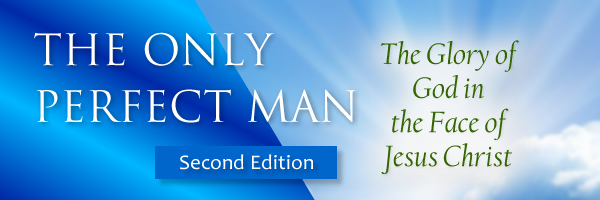You are here
Appendix 5

Appendix 5
Jesus’ Sinless Perfection is Rejected by Many Scholars as Impossible
The following extract is from International Standard Bible Encyclopedia, article “Jesus Christ,” by John J. Maclaren. It gives helpful insight into the supremely miraculous nature of Christ’s perfection and sinlessness, and how it is regarded as impossible by many scholars (but not by Maclaren).
[Start of extract]
IV. The Character and Claims.
1. Denial of Christ’s Moral Perfection:
Where the Gospels present us in Jesus with the image of a flawless character—in the words of the writer to the Hebrews, “holy, guileless, undefiled, separated from sinners” (Heb 7:26)—modern criticism is driven by an inexorable necessity to deprive Jesus of His sinless perfection, and to impute to Him the error, frailty, and moral infirmity that belong to ordinary mortals. In Schweitzer’s portraiture (compare op. cit.), He is an apocalyptic enthusiastic, ruled by illusory ideals, deceiving Himself and others as to who He was, and as to the impending end of the world. Those who show a more adequate appreciation of Christ’s spiritual greatness are still prevented by their humanitarian estimate of His person and their denial of the supernatural in history from recognizing the possibility of His sinlessness. It may confidently be said that there is hardly a single writer of the modern school who grants Christ’s moral perfection. To do so would be to admit a miracle in humanity, and we have heard that miracle is by the highest rational necessity excluded. This, however, is precisely the point on which the modern so-called “historical-critical” mode of presentation most obviously breaks down. The ideal of perfect holiness in the Gospels which has fascinated the conscience of Christendom for 18 centuries, and attests itself anew to every candid reader, is not thus lightly to be got rid of, or explained away as the invention of a church gathered out (without the help of the ideal) promiscuously from Jews and Gentiles. It was not the church—least of all such a church—that created Christ, but Christ that created the church.
(1) The Sinlessness Assured
The sinlessness of Jesus is a datum in the Gospels. Over against a sinful world He stands as a Savior who is Himself without sin. His is the one life in humanity in which is presented a perfect knowledge and unbroken fellowship with the Father, undeviating obedience to His will, unswerving devotion under the severest strain of temptation and suffering to the highest ideal of goodness. The ethical ideal was never raised to so absolute a height as it is in the teaching of Jesus, and the miracle is that, high as it is in its unsullied purity, the character of Jesus corresponds with it, and realizes it. Word and life for once in history perfectly agree. Jesus, with the keenest sensitiveness to sin in thought and feeling as in deed, is conscious of no sin in Himself, confesses no sin, disclaims the presence of it, speaks and acts continually on the assumption that He is without it. Those who knew Him best declared Him to be without sin (1 Pet 2:22; 1 Jn 3:5; compare 2Cor 5:21). The Gospels must be rent in pieces before this image of a perfect holiness can be effaced from them.
(2) What This Implies
How is this phenomenon of a sinless personality in Jesus to be explained? It is itself a miracle, and can only be made credible by a creative miracle in Christ’s origin. It may be argued that a Virgin Birth does not of itself secure sinlessness, but it will hardly be disputed that at least a sinless personality implies miracle in its production. It is precisely because of this that the modern spirit feels bound to reject it. In the Gospels it is not the Virgin Birth by itself which is invoked to explain Christ’s sinlessness, but the supernatural conception by the Holy Spirit (Lk 1:35). It is because of this conception that the birth is a virgin one. No explanation of the supernatural element in Christ’s Person is more rational or credible (see below on “Nativity”).
2. Sinlessness and the Messianic Claim
If Jesus from the first was conscious of Himself as without sin and if, as the converse of this, He knew Himself as standing in an unbroken filial fellowship with the Father, He must early have become conscious of His special vocation, and learnt to distinguish Himself from others as one called to bless and save them. Here is the true germ of His Messianic consciousness, from which everything subsequently is unfolded. He stood in a rapport with the Father which opened His spirit to a full, clear revelation of the Father’s will regarding Himself, His mission, the kingdom He came to found, His sufferings as the means of salvation to the world, the glory that awaited Him when His earthly work was done. In the light of this revelation He read the Old Testament Scriptures and saw His course there made plain. When the hour had come He went to John for baptism, and His brief, eventful ministry, which should end in the cross, began. This is the reading of events which introduces consistency and purpose into the life of Jesus, and it is this we mean to follow in the sketch now to be given.
(c) 2021 Christian Disciples Church
